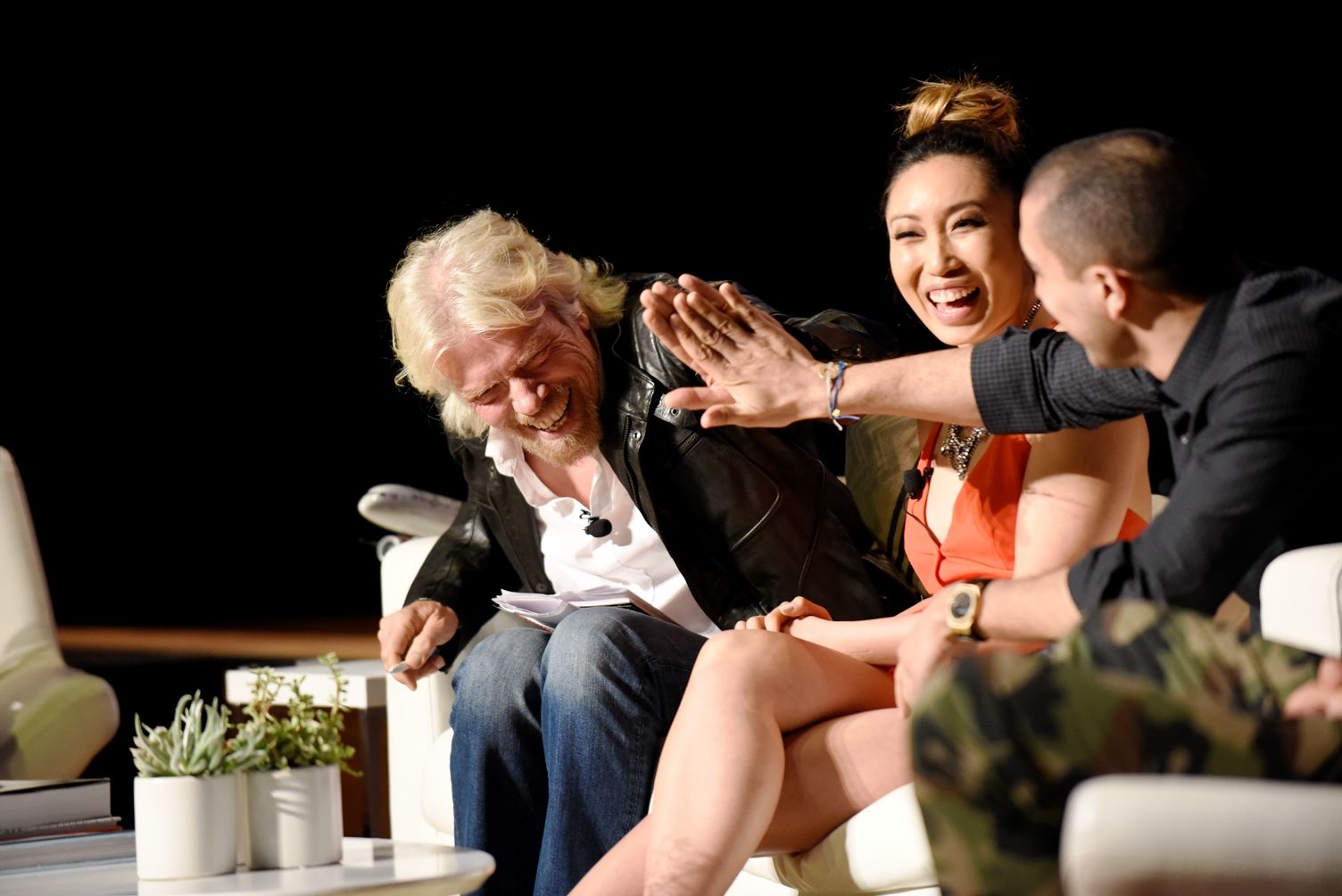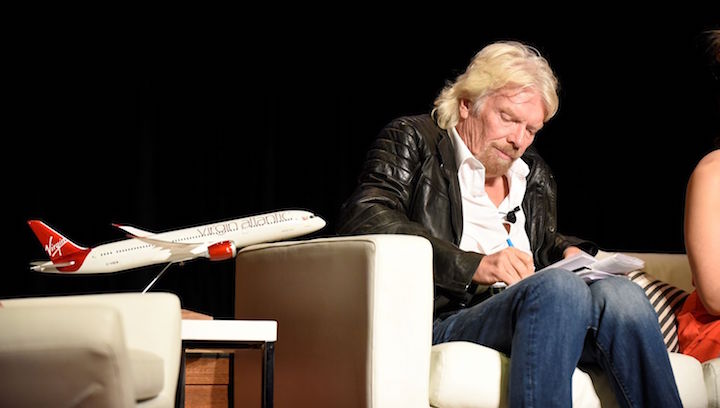If you stroll through your local bookstore and make your way to the business literature section, you’ll likely notice a blond, remarkable man smiling at you from the cover. To be honest, his face is very optimistic and somewhat dreamy, but serious at the same time. That’s Richard Branson – best known as the founder of Virgin Group, which comprises more than 400 companies – the king of business books and business in general.
Believe it or not, Branson left school at the age of 16. His academic performance was very poor, so he didn’t see the point in trying to learn things he thought he wouldn’t need in his future career.
On his last day at school, his headmaster told him something that made a real difference: he would either end up in prison or become a millionaire. Guess which one of these scenarios panned out!
I am not telling you to quit school, an education can be an essential stepping stone for many. However, Richard Branson has important lessons to teach every entrepreneur.
Here’s how you can benefit from the example Branson has set.
1. You’re never too young to go for it!
Branson started his first business at the age of sixteen. He ran a magazine called Student from a church. His strong, friendly personality shined through the pages of this magazine, which included interviews with Mick Jagger, R. D. Laing, and other stars.
2. Start at the point of frustration.
“There is no point in starting your own business unless you do it out of a sense of frustration,” Branson suggests. As Forbes contributor Martin Zwilling states, “The road to business success is filled with challenges and frustrations that most aspiring entrepreneurs never even imagined.” When you are frustrated with how things work, opportunities and new ways of thinking can emerge.
3. One success leads to another.
Virgin Atlantic Airways, which was formed in 1984, “has become Britain’s second largest carrier serving the world’s major cities,” according to company reports. To take things further, Virgin America Inc. began service on August 8, 2007, establishing offices in California. Success is sequential. According to Branson, “Your brand needs to make its mark, and making that mark means that when you go offer space travel or something, people will say they’d like you to be successful at that as well. So one thing leads on to another.”

4. Expose yourself .
As one of the most notable international businesspeople, Branson is accessible. He regularly appears on TV and in movies. If you intend to make a difference in this world, it’s time to start working on your interpersonal and personal branding skills.
5. Leverage your challenges.
Branson has dyslexia. But he didn’t let difficulties with reading and comprehension slow him down. “This actually made him a better manager, he wrote in his 2012 book “Like a Virgin,” and it became what he considers his “greatest strength.” BI reports, “Branson recently told Bloomberg West’s Cory Johnson that his dyslexia has helped him keep communication efficient, and showed him the importance of delegation.” Sure, he has dyslexia, but he can sure write cool books and it didn’t stop him from becoming a billionaire!
6. Follow your dreams.
This is the first rule Branson shared with BBC: “Follow your dreams, get involved in life, in the things that interest you. If you are going to create a business, make sure it is your hobby, your passion or something that you really enjoy.”
Every human being has a passion and the goal is to find your passion. That’s what makes us unique. Don’t let anything dull that natural desire for greatness. Follow your dreams – the road to success starts there.
7. Have some fun along the way .
You won’t achieve real success if you don’t enjoy the journey. In 2013, Branson dressed up as a stewardess after losing a bet, and he served passengers on a flight from Perth to Kuala Lumpur.
8. Money shouldn’t be your only motive.
Branson owns a conglomerate of businesses, yet many people would be surprised to learn that money wasn’t his sole objective. “I have never gone into any business purely to make money. If money is your only motive, then I believe you shouldn’t launch the business at all,” he notes.
9. Bet on yourself.
The insecurity associated with taking risks is felt by many entrepreneurs. If you’re ready to become all that you are meant to be, you’ll have to bet on yourself, over and over again.
10. Mistakes are a part of the process.
Mistakes are inevitable, but you need to bounce back from them! In his book Like a Virgin: Secrets They Won’t Teach you at Business School, Branson is refreshingly candid: you can’t always make the right decision.
All entrepreneurs make mistakes; you’ll be successful only if you get bak up. When you make a mistake, stay honest with yourself. The point is in the solution you discover after you’ve made a mistake.
This article has been edited and condensed.
Julie Martin is a student and math expert at assignment writing company MyMathDone. Her greatest hobbies in reading and traveling. Julie is glad to share her experience with audience and provide a good advice. Connect with @MyMathDone on Twitter.
© YFS Magazine. All Rights Reserved. Copying prohibited. All material is protected by U.S. and international copyright laws. Unauthorized reproduction or distribution of this material is prohibited. Sharing of this material under Attribution-NonCommercial-NoDerivatives 4.0 International terms, listed here, is permitted.













